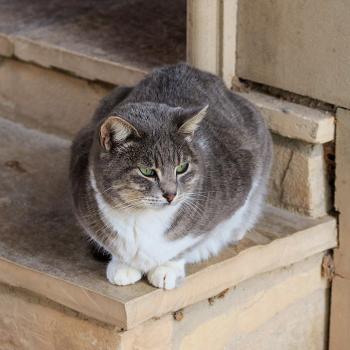This week the Supreme Court heard a case, Young v. United Parcel Service, weighing treatment of a female UPS driver, Peggy Young, denied a shift to light duty when expecting a baby. Putatively at issue are discrimination and prospects of regulation for “pregnant workers.” As a report from the National Women’s Law Center argues, “It is long past time to make room for pregnancy on the job, and afford pregnant women the equal opportunity they deserve.” Ms. Young reported initial surprise that her pregnancy was counted disability, protesting that her condition was “not a disability…not a handicap. It’s none of that.” The foundational problem is this: that the best way a company or agency can think to classify pregnancy is as disability.
Public talk about pregnancy can be tricky because abortion debates sit so nearby. Having skirted that minefield—pro-choice and pro-life protestors are taking the same side on this one—the case gets stuck in another, the place of work and family in the lives of women. In court arguments over employers’ duty to not to discriminate, clumsy efforts to liken childbearing to pulling out one’s back or knee, or to injury incurred by “[falling] off an all-terrain vehicle on the weekend, “ reveal misperceptions of what it means to carry a baby. Attempts to describe what pregnancy is, in relation to work, often take two wrong directions. Either the labor of childbearing is minimized, nothing that need hinder employee performance, or it becomes as an occasion of female special-pleading—what Justice Scalia this week compared to “most favored nation” status.
The very label “pregnant worker” seems to presume that one’s job constitutes adult identity. All that other stuff, relationships and families and dependencies, appear as optional fillips to be added on as one can afford. Childbearing gets construed as a private preference, like a funny hobby to which women are strangely attracted, but not relevant to the truly meaningful sphere of action, work. For women this view of vocation means figuring out where to stick kids so that their own best years may be given to work—or even getting an employer willing to sit on her eggs until she is ready to start a family.
This way of considering pregnancy is woefully inadequate. Childbearing is real work, not just an interruption of some other serious job. Historian Kathleen Crowther’s study of 16th century church ordinances and Lutheran manuals for expectant women finds high regard for mothers as God’s means for “this exalted work of creation.” Not only in church context but in civic spheres as well influence was accorded to expectant women in early modern Germany, argues Cambridge historian Ulinka Rublack. Since childbearing was “an unparalleled gift to humankind, outside any logic of rational exchange,” Rublack notes, this “entitled pregnant women to insist that generosity temper retributive justice,” even to speak with privileged voice against political violence and “beg for the life of malefactors.” The point emphatically is not that that pregnancy was better in bygone days, but that do there exist ways of paying public regard to childbearing beyond regulation or litigation.
Why should any of us care about some other woman’s pregnancy? Because that figure with rounded belly is a living, breathing exhibit of something important about us as human beings. It should elicit gratitude, not merely for her own private family life but as an emblem of the generosity and dependence on which the lives of all of us rest. From time to time measures are proposed for paying public respect to pregnancy—reserved “stork” parking places or subway seats—though these too are sometimes faulted for likening pregnancy to debility. There have to be superior ways of honoring childbearing than benefits-based-on-disability. New regulations for pregnant workers may or may not be the way to go. In any case, culture and manners should go ahead of law. Let that woman sit down already.











